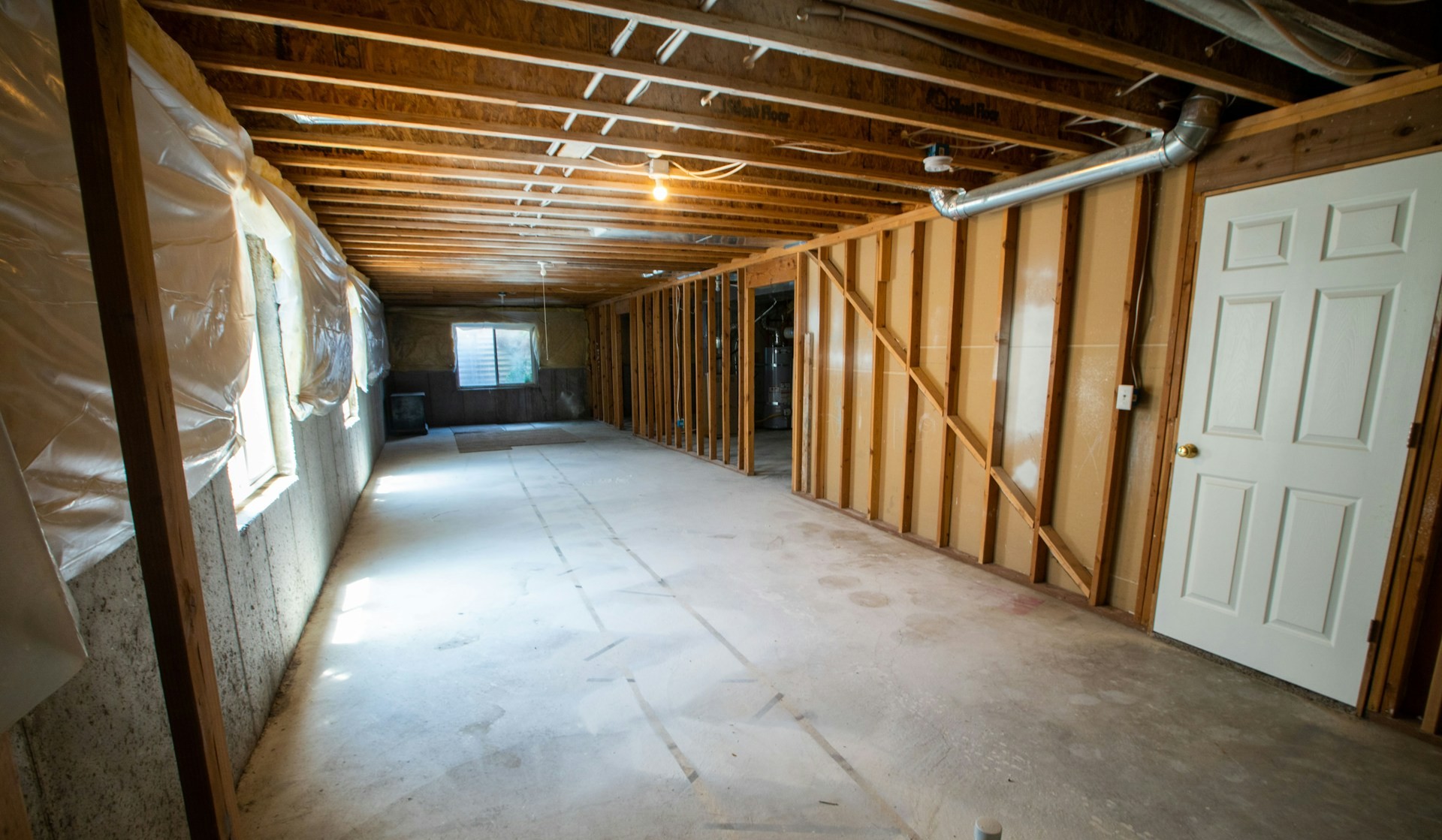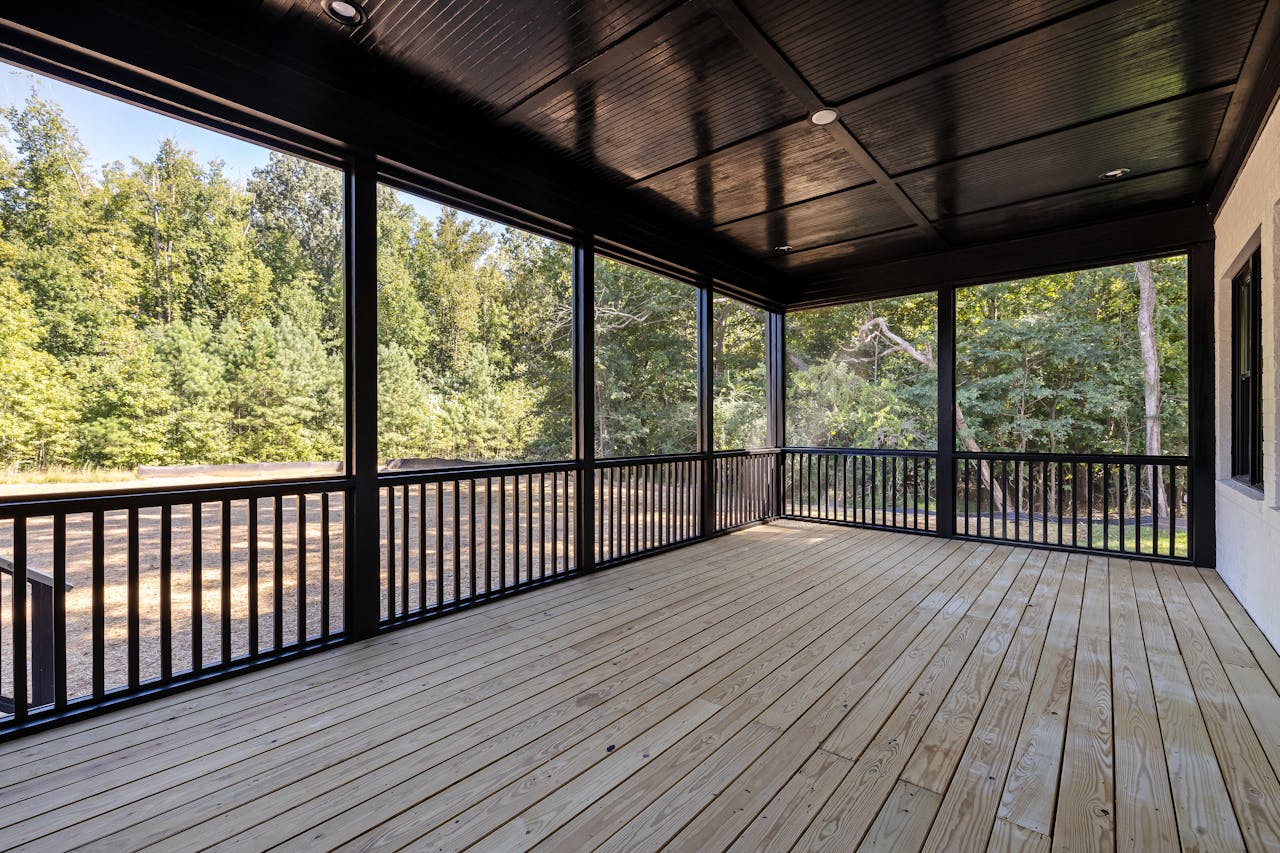Across suburbs and small towns, homeowners stack lumber, lug tiles, and reroute wires believing ambition and tutorials will carry them through. City code offices see a different story: structural loads missed by inches, gas lines left vulnerable, bedrooms with no safe escape. Permits exist to catch those failures before they matter. A bit of planning, paperwork, and inspection keeps projects legal, insurable, and strong enough to protect every person who trusts these walls, now and in all the years ahead.
Finishing A Basement Into Living Space

Framing walls, hiding utilities, and adding a cozy TV corner turns a basement into real living space, and that usually triggers permits. Inspectors check egress windows, smoke alarms, moisture control, insulation, and accurate electrical loads. When skipped, a polished room can count as storage only, sink appraisal value, and leave families sleeping beside wiring, gas appliances, low ceilings, and exits that were never reviewed for basic safety.
Building Or Expanding A Deck Or Porch

Elevated decks and porches live at the edge of comfort and real risk, which is why municipalities call for permits once size or height crosses set limits. Plans confirm concrete footings below frost lines, solid ledger attachment, flashing, and secure railings. An unpermitted build that wobbles, pulls from the house, or blocks setbacks can attract complaints, collapse under guests, and force an expensive rebuild under closer inspection.
Removing Walls And Changing Layouts
Knocking out a wall to open a kitchen or stretch a living room feels simple until that wall turns out to be carrying joists. Structural changes almost always need permits and sometimes engineer review. Inspectors verify beam sizing, load paths, and anchoring so cracks, sagging floors, or stuck doors do not appear months later. When the work is hidden without approval, buyers, lenders, and insurers all start asking hard questions. Paperwork is cheaper than guesswork.
Installing New Electrical Circuits Or Panels

Adding recessed lights, workshop outlets, or an EV charger means new wiring, and that usually calls for an electrical permit. Inspectors check breaker sizing, wire gauges, grounding, GFCI and AFCI protection, and box fills that match code. Unpermitted circuits buried in walls can overheat quietly, void insurance after a fire, and leave the next owner inheriting hidden hazards. Safe loads and clear records age better than guess and hope.
Major Plumbing Changes And Gas Lines

Relocating a kitchen sink, adding a bathroom, or running a new gas line reshapes how water and fuel move through the structure. Plumbing and mechanical permits confirm venting, slope, pipe sizing, pressure tests, and approved gas connectors. When those checks are skipped, slow leaks, sewer gas, and tiny gas seeps hide behind tile and drywall. Problems often surface only during emergencies, inspections, or buyer due diligence, when fixes hurt most.
Replacing Or Enlarging Windows And Exterior Doors

Swapping windows or enlarging patio doors looks cosmetic, but altering openings changes structure, egress, and energy rules. Many areas require permits if sizes, locations, or safety glazing change. Inspectors confirm headers, tempered glass near floors or tubs, and flashing that keeps water out of framing. Unpermitted installs can leak, rot the envelope, fail bedroom escape standards, and stall a sale when paperwork does not match what the walls show.
Full Roof Replacements And New Skylights

Full roof replacements, heavy new materials, or skylights usually trigger permit requirements that many owners overlook. Reviews check sheathing, underlayment, ventilation, and framing loads so storms and snow do not win. When contractors layer shingles wrong, skip flashing, or overload rafters without oversight, damage may hide until leaks or sagging appear. At resale, unpermitted roofs can void warranties, alarm inspectors, and shift costs back onto the homeowner.
Fences And Retaining Walls At Key Heights

Tall fences and retaining walls seem harmless, yet they affect sight lines, drainage, and soil pressure on neighboring yards. Many codes demand permits once height, placement, or structural loads pass clear thresholds. Inspectors review setbacks, footings, and drainage paths that keep dirt and water where they belong. Built quietly without approval, a leaning wall or blocked view can spark disputes, citations, and full removal at the owner’s expense.
HVAC System Installs And Water Heater Swaps

Replacing a furnace, adding central air, or swapping a water heater involves combustion, venting, and electrical demands that building departments track closely. Mechanical permits let inspectors verify clearances, flue routes, condensate drains, shutoff valves, and gas tests. When that review is skipped, carbon monoxide, backdrafting, or leaks can turn a simple upgrade into a safety story. Insurers and investigators will look for paperwork when something goes wrong.
Converting Garages To Living Space Or ADUs

Turning a garage into a bedroom, studio, or accessory dwelling feels like a smart use of space, but it touches almost every code category. Permits confirm insulation, fire separation from the house, safe egress, ventilation, and parking rules. Without approval, that polished unit may be classified as storage only, blocking rentals, complicating insurance, and drawing enforcement when cities crack down on unpermitted conversions or neighbors start asking questions.


